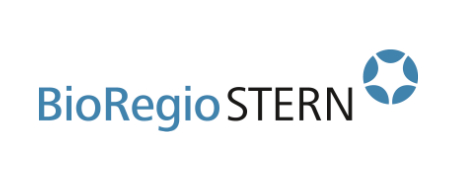Biotechnology
- Standortagentur Tübingen - Reutlingen - Zollernalb /
- Business Location & Investor Service /
- Industries & Clusters /
- Biotechnology
What exactly makes the Neckar-Alb region an internationally recognized site for biotechnology? First and foremost, it’s a scientific environment that focuses on business-oriented research and development in all aspects of biotechnology. Here, start-up companies and young entrepreneurs will find the infrastructure they need quickly and without a lot of red tape, from labs and clean rooms to a long list of service providers.
Scientific research and teaching is the backbone of economic success in the field of biotechnology. In the Neckar-Alb region, the University of Tübingen acts as an important contributor in this particular area. In addition to offering the first biochemistry degree in Germany and housing faculties for biology, chemistry, pharmacy, and medicine, the University of Tübingen also offers a degree in bioinformatics and postgraduate studies in “Natural & Behavioral Sciences”, which was established in cooperation with the Max Planck Institutes. The University of Reutlingen, on the other hand, offers courses in process analysis and applied chemistry, while Albstadt-Sigmaringen University’s Life Sciences department offers degrees in biomedical engineering, nutrition, hygiene, foodstuffs, pharmaceutical engineering, and facility management. Thanks to schools like Tübingen’s Mathilde-Weber-Schule and Reutlingen's Laura-Schradin-Schule , some of the region’s pupils even begin their scientific education in biotechnological high schools before setting foot inside a university.
Provisions have been made for the future as well: Excellently equipped technology parks such as the TTR (Technology Park Tübingen Reutlingen) or the industrial park Unipro in Gomaringen offer the best conditions for spin-off companies and business settlements.
Last but not least, the Neckar-Alb region stands out in terms of biotechnology because of foundations like the Max Planck Institutes for Developmental Biology, Biological Cybernetics, and Biology as well as the Friedrich Miescher Laboratory in Tübingen and the University of Tübingen’s Natural and Medical Sciences Institute (NMI) in Reutlingen.






The region even produced a Nobel Prize Winner in 1995: Prof. Dr. Christiane Nüsslein-Volhard. Currently working as Director of the Max Planck Institute for Developmental Biology in Tübingen, Prof. Dr. Nüsslein-Volhard was even recorded in the Paris Academy of Sciences in 2010. But don’t be fooled into thinking the region’s world-class status is something new: Friedrich Miescher discovered nucleic acids in Tübingen in as early as 1869, thus creating the concept of biochemistry.
Oftentimes, the creation of innovative products is the result of communication and the exchange of information with other industries, especially medical technology and automation. A high density of local medical technology companies holds considerable synergy potential and is a solid site advantage in addition to its proximity to universities and the ready availability of scientific personnel. Local automotive suppliers and automation specialists also work with biotechnology companies or have discovered biotechnological automation as a new field of business.